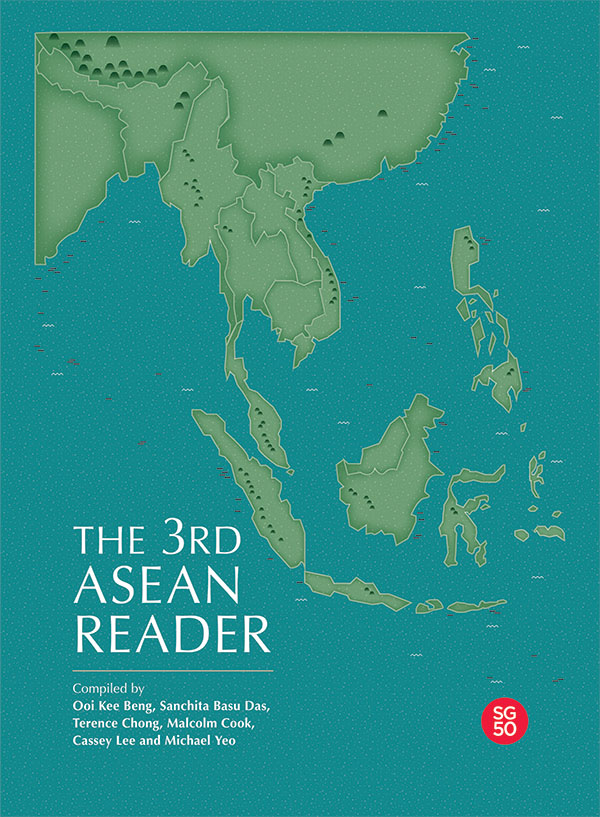Book contents
- Frontmatter
- Contents
- Preface
- Forewords to the First and Second ASEAN Reader: ASEAN: Conception and Evolution
- Forewords to the First and Second ASEAN Reader: ASEAN: The Way Ahead
- Forewords to the First and Second ASEAN Reader: New Challenges for ASEAN
- SECTION I ASEAN: THE LONG VIEW
- SECTION II COUNTRY ANALYSES
- SECTION III COMPARATIVE ANALYSES OF THE REGION
- Southeast Asian Societies
- The Southeast Asian Economy
- Southeast Asian Politics
- SECTION IV INTERNATIONAL DEVELOPMENTS
- SECTION V INSTITUTIONS OF ASEAN
- SECTION VI ASSESSING ASEAN'S INTERNAL POLICIES
- ASEAN Political Security Community
- 39 Achieving an ASEAN Security Community
- 40 Turning Points Beyond the Comfort Zone?
- ASEAN Economic Community
- ASEAN Socio-Cultural Community
- SECTION VII ASSESSING ASEAN'S EXTERNAL INITIATIVES
- ASEAN Processes
- ASEAN's Major Power Relations
- SECTION VIII SOUTHEAST ASIA: PERIPHERAL NO MORE
- Bibliography
- The Contributors
- The Compilers
40 - Turning Points Beyond the Comfort Zone?
from ASEAN Political Security Community
Published online by Cambridge University Press: 22 June 2017
- Frontmatter
- Contents
- Preface
- Forewords to the First and Second ASEAN Reader: ASEAN: Conception and Evolution
- Forewords to the First and Second ASEAN Reader: ASEAN: The Way Ahead
- Forewords to the First and Second ASEAN Reader: New Challenges for ASEAN
- SECTION I ASEAN: THE LONG VIEW
- SECTION II COUNTRY ANALYSES
- SECTION III COMPARATIVE ANALYSES OF THE REGION
- Southeast Asian Societies
- The Southeast Asian Economy
- Southeast Asian Politics
- SECTION IV INTERNATIONAL DEVELOPMENTS
- SECTION V INSTITUTIONS OF ASEAN
- SECTION VI ASSESSING ASEAN'S INTERNAL POLICIES
- ASEAN Political Security Community
- 39 Achieving an ASEAN Security Community
- 40 Turning Points Beyond the Comfort Zone?
- ASEAN Economic Community
- ASEAN Socio-Cultural Community
- SECTION VII ASSESSING ASEAN'S EXTERNAL INITIATIVES
- ASEAN Processes
- ASEAN's Major Power Relations
- SECTION VIII SOUTHEAST ASIA: PERIPHERAL NO MORE
- Bibliography
- The Contributors
- The Compilers
Summary
CONTROVERSY OVER MYANMAR AND CAMBODIA's MEMBERSHIP
ASEAN was mired in controversy over the admission of new members. Just as ASEAN was preparing for the ASEAN Ministerial Summit in July 1997 and its thirtieth anniversary celebrations, Cambodia was caught in a power struggle. Cambodia's second prime minister, Hun Sen, staged a coup to oust Prince Ranariddh as first prime minister. As a consequence, ASEAN decided to delay Cambodia's admission into ASEAN. ASEAN's decision was to drive home the point that no leadership or form of government by violent means was ever to be encouraged.
The deferment of Cambodia's membership juxtaposed against the admission of Myanmar earned ASEAN a lot of flak for its inconsistency and double standard. ASEAN's position was that while Myanmar's political conditions were regarded as internal matters of the state, Cambodia's case was viewed differently. The latter was regarded as one that had serious implications for ASEAN since Cambodia broke the regional norm of the non-use of force. As a consequence, ASEAN insisted that Cambodia met certain conditions before its admission, which included among others, the holding of free and fair elections and the establishment of the Cambodian Senate. ASEAN also formed the ASEAN Troika to deal with efforts at restoring political stability in Cambodia. However, ASEAN's drawing of a distinction between the cases of Myanmar and Cambodia based on the norms of non-interference and non-use of force was not lost on its critics.
Controversy notwithstanding, the Cam-bodian episode eventually led to the formal establishment of the ASEAN Troika in 1999. As defined by its experience in Cambodia, the ASEAN Troika was to be an ad hoc body comprising the ASEAN Foreign Ministers of the present, past, and future chairs of the ASEAN Standing Committee (ASC). The positions would rotate in accordance with the ASC's chairmanship. The purpose of the Troika was to enable ASEAN to address urgent and important political and security issues in a timely manner. However, the mandate of the Troika as stipulated in the Troika paper had to be compatible with the principles enshrined in the TAC, particularly the core principles of consensus and non-interference in domestic affairs of states.
THE REGIONAL HAZE PROBLEM
The regional challenges brought on by the financial crisis were exacerbated by the onset of the haze problem that enveloped most of Southeast Asia between 1997 and 1998.
- Type
- Chapter
- Information
- The 3rd ASEAN Reader , pp. 209 - 214Publisher: ISEAS–Yusof Ishak InstitutePrint publication year: 2015



